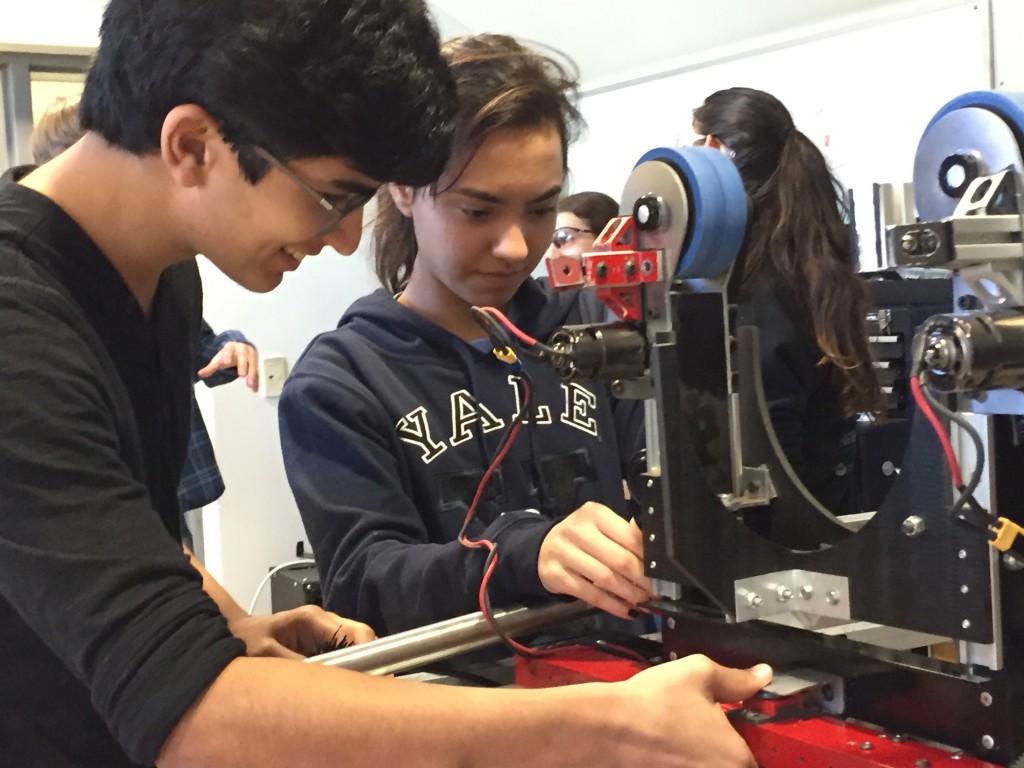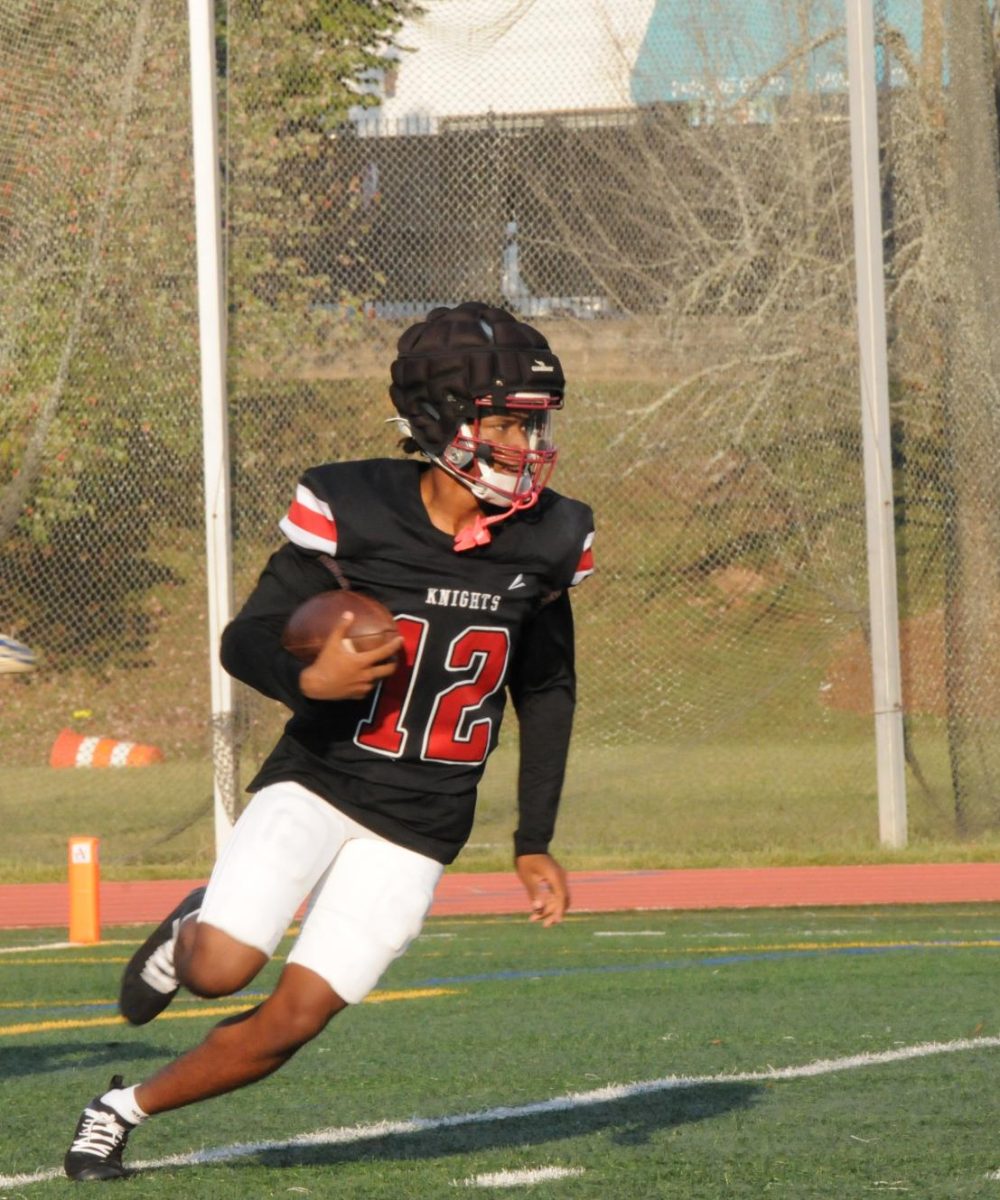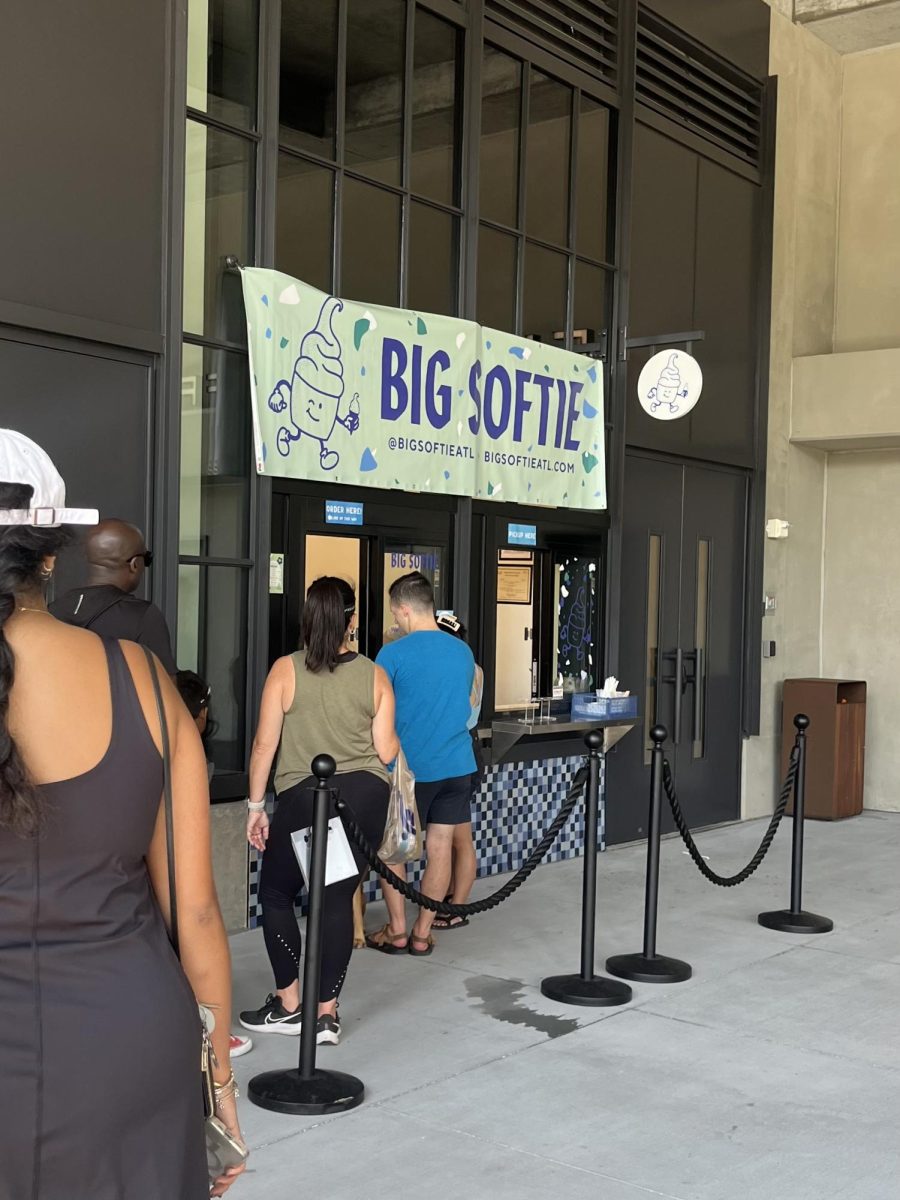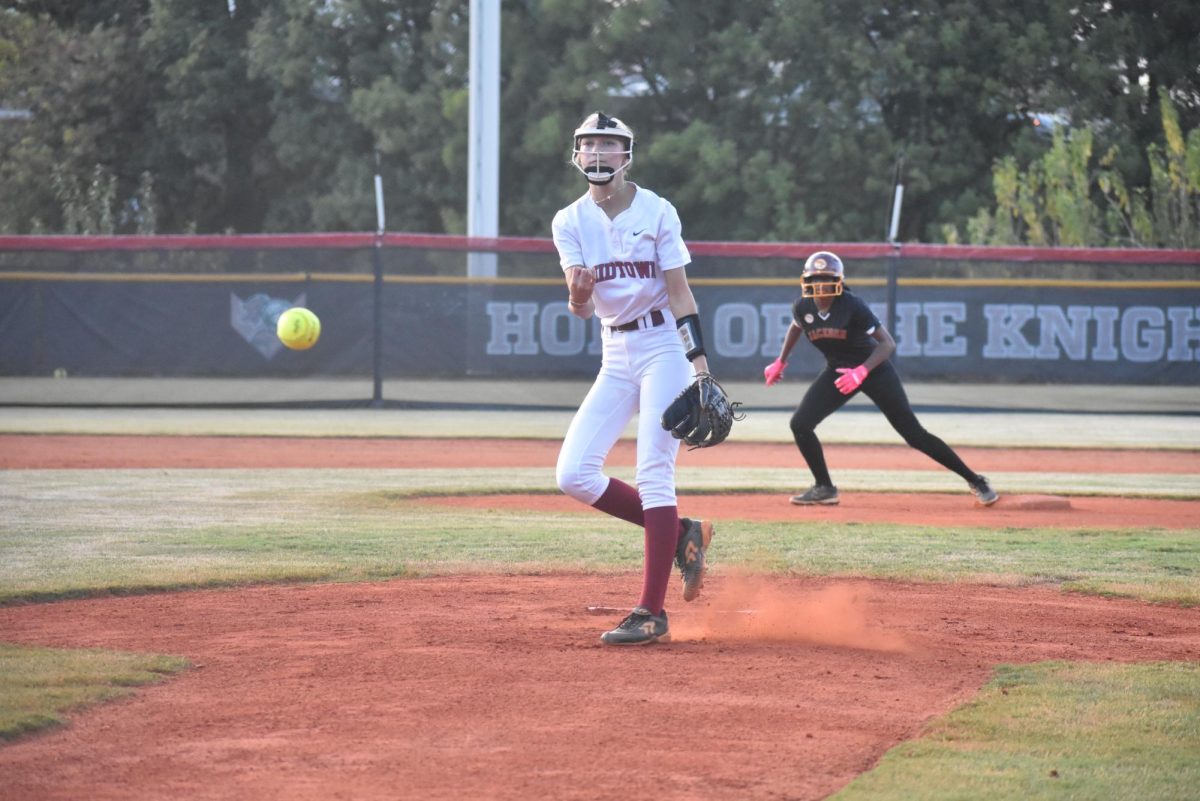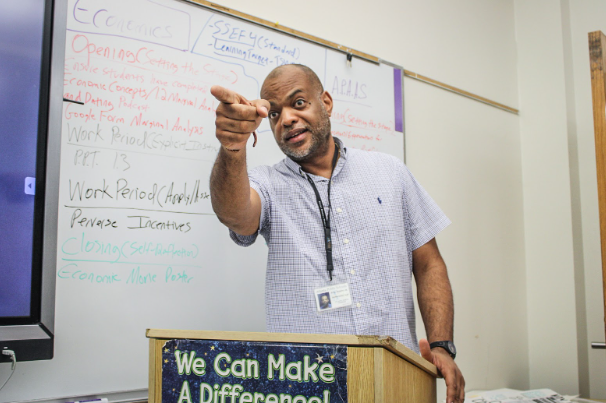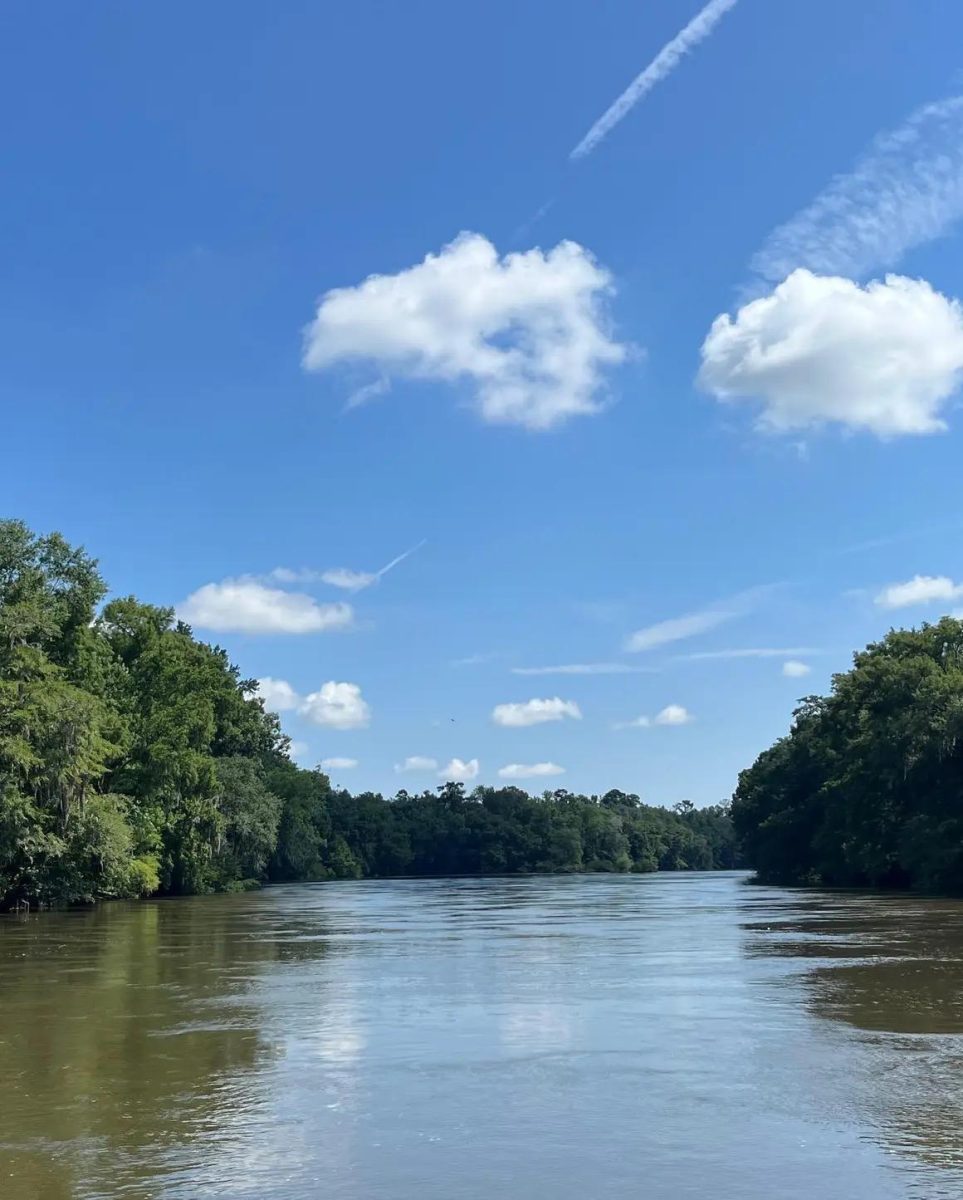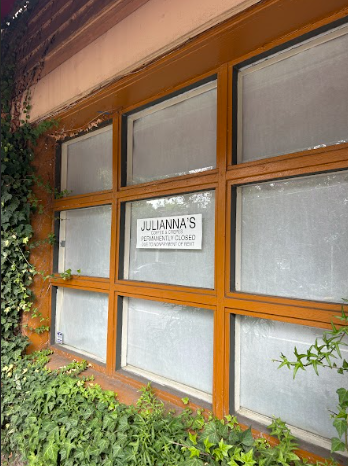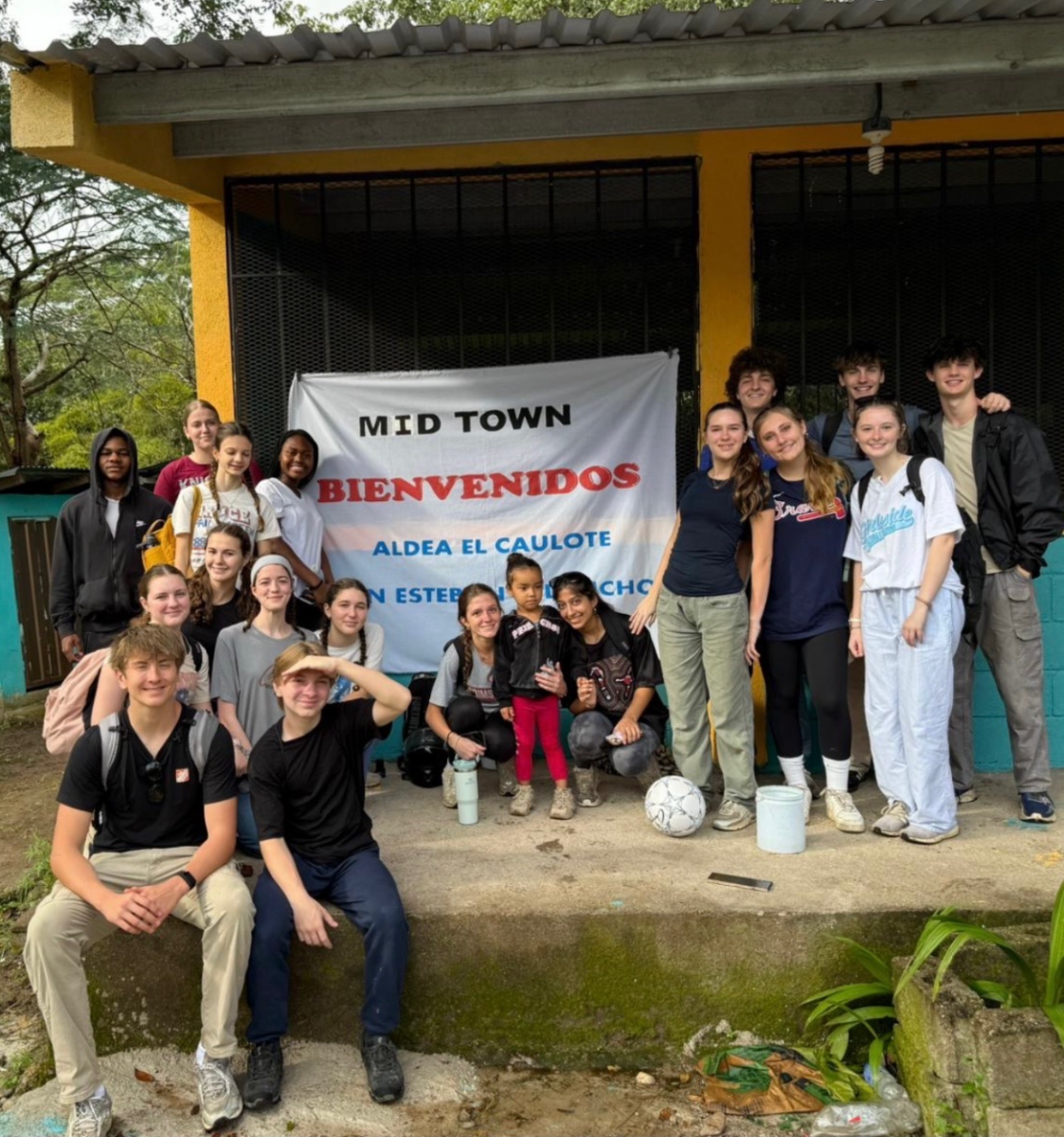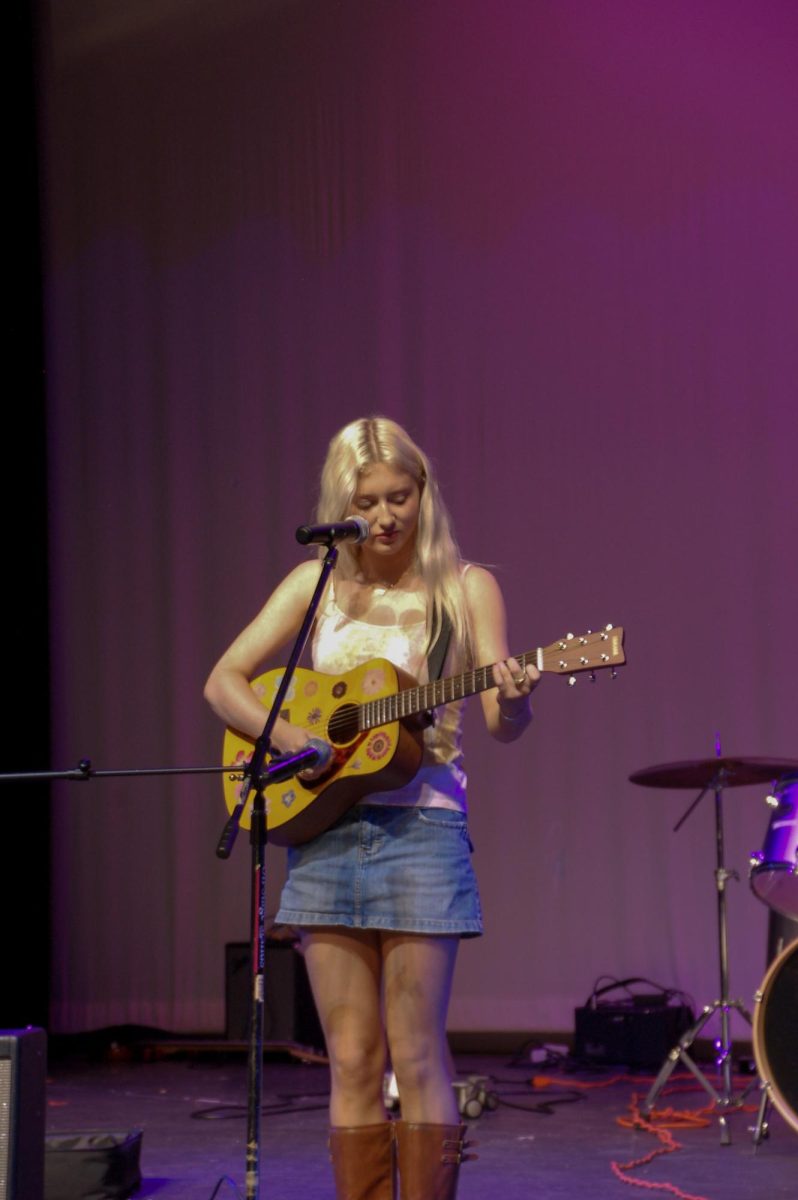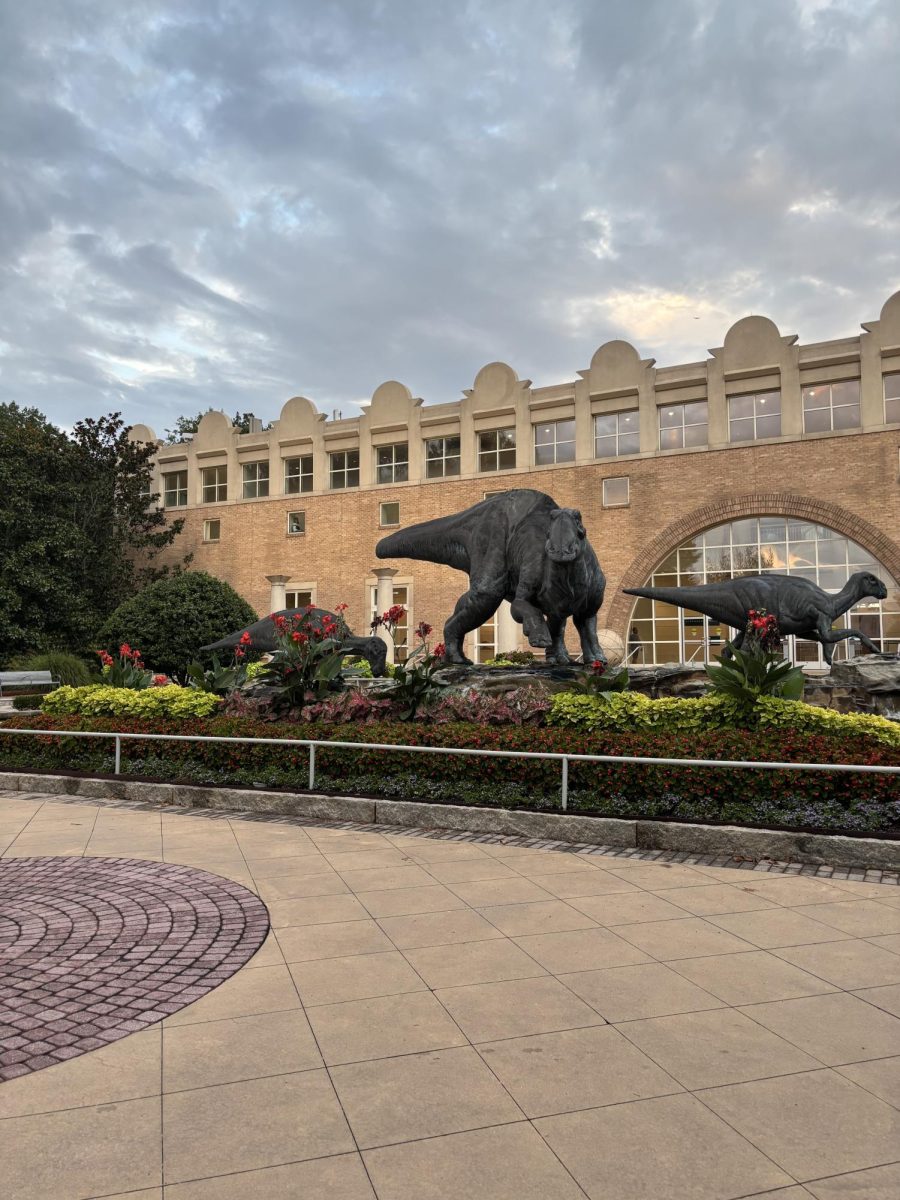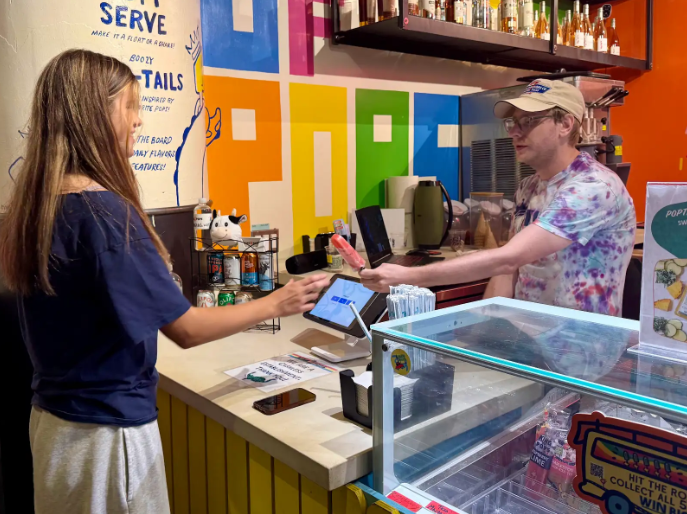
Seniors Sajjad Ali and Isabelle Carson know a thing or two about polarized light. Their science fair project, which explores the effects of polarized light on solar cell yield, is one of only three projects in Atlanta to progress to both the state and international competitions directly from the regional round.
“[Our project] is based around the idea that light is three-dimensional,” Ali said. “If you cut out one of those dimensions, do the voltage and current change by 50 percent? Or 100 percent? Or does something else happen?”
For such a heady subject, Ali and Carson somewhat surprisingly conceptualized their idea the night before topics were due.
“We didn’t really have time to think,” Carson said.
Ali and Carson were drawn to study polarized light with this particular topic because it was relatively untested.
“When we did a little bit of looking around on Google about how polarized light affects cells, there was nothing,” Ali said. “Absolutely nothing. We realized that even if it was a basic explanation, it was something that hadn’t been done before.”
Using only a LabQuest borrowed from Physics teacher Luke Esposito, Carson and Ali went to work on their project a mere week before it was due.
“Sajjad and Isabelle are a unique situation in the sense that they came across a good idea at the right time and had the right skills and background knowledge to bring it together all at once,” said Andrew Nichols, Grady’s gifted education lead teacher. “They were really lucky in that they landed on a good idea and had the right intersection of previous knowledge. Everything just came together.”
Esposito said that the pair polarized sunlight hitting a solar cell with a filter; because polarizing filters cut the intensity of light by 50 percent, Ali and Carson hypothesized that the light’s current and voltage would halve as well.
“The current was cut in half, but the voltage stayed almost the same,” Esposito said. “In other words, the energy that they were giving the electrons was pretty much the same as if they didn’t have a polarizing filter there, but the current was weakened.”
Since the pair had little prior understanding of the theory behind their results, the project required a slew of research into complex physics topics such as wave particle duality and Planck’s formulas.
Luckily, their natural curiosity surrounding polarized light led them to enjoy the process.
“I’ve always been a math person, and Sajjad has always been a physics person,” Carson said.
Ali said that their specific interests lent themselves well to collaboration; after investigating the relationship between current and voltage curves, and finding that their results didn’t follow Ohm’s law, Ali suggested that he and Carson make their own current-voltage curve specifically for solar cells.
“And then Isabelle explained to me why that was really dumb mathematically,” Ali said. “From a physics standpoint it would be interesting, but from a math standpoint, it’s really, really simple.”
Ali and Carson noticed as they progressed to the regional fair that many of their competitors relied heavily on outside resources. Unlike their competition, however, Carson and Ali completed their project without the help of Georgia Tech mentors or labs.
“We wanted to do something that we could do on our own and make the conclusions on our own, just by doing research,” Ali said. “I think that that’s one of the things that set our project apart. It was much more home-grown [than the others], because we were interested in it and [didn’t complete it] in order to win.”
On May 8-13, Ali and Carson will present their project at Intel’s international competition in Phoenix. Until then, they will continue to improve their project; at the international level, students must present practical applications and detail the logistics for implementing their ideas.
“We really have to step it up,” Ali said.
With afternoons and weekends devoted to robotics, Ali and Carson anticipate a period of “crunch time.” Fortunately, however, the pair considers their project to be a labor of love.
“We got extra credit [for completing a science fair project], but that didn’t really matter to us,” Ali said. “[This project is] just something that we find fun. The kind of research and curiosity that we have with math and physics is something that you can apply and it really matters.”
Six other Grady projects have progressed to the state fair, which will be held at the University of Georgia throughout the weekend of April 2. Some of these projects may then advance to Intel’s International fair.

